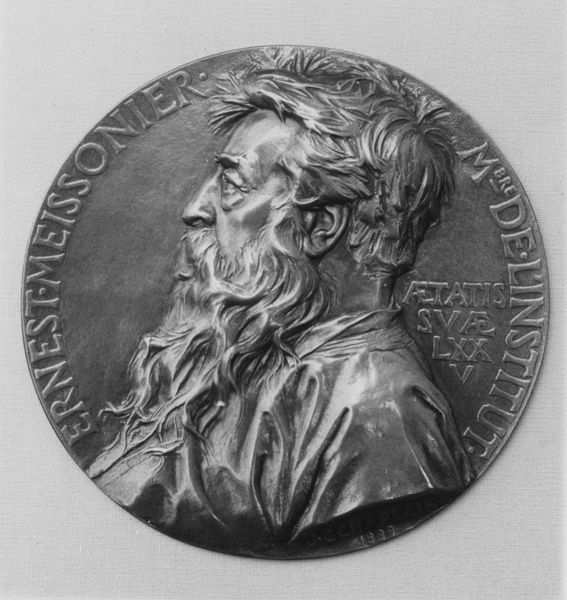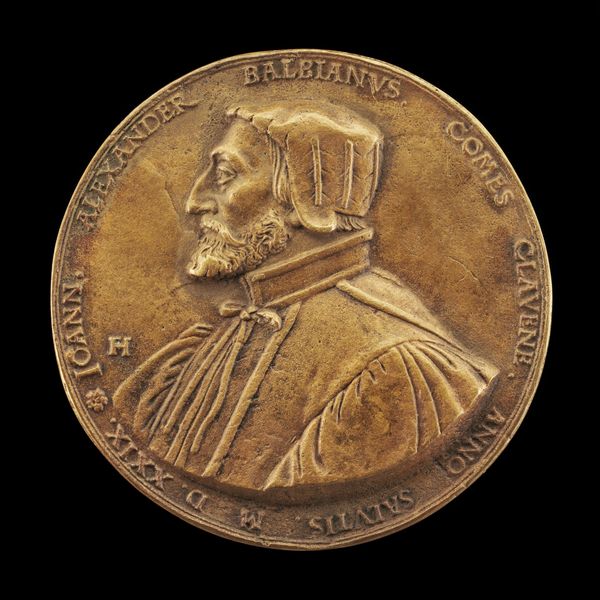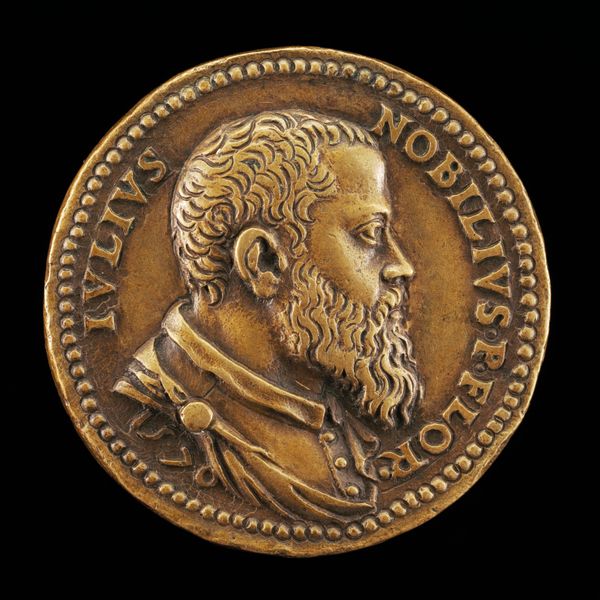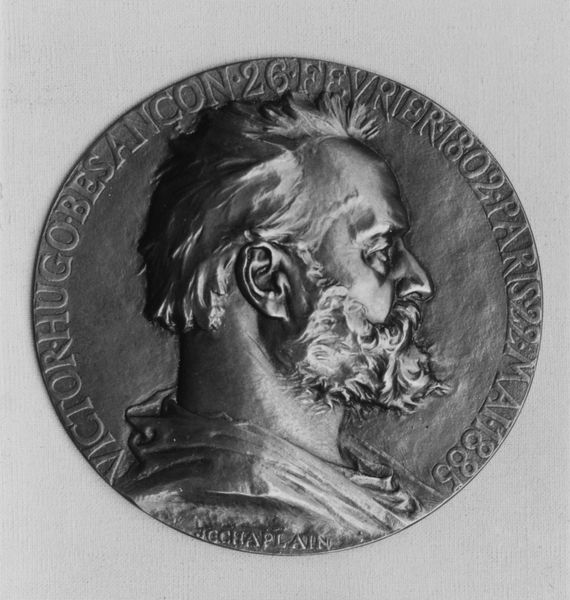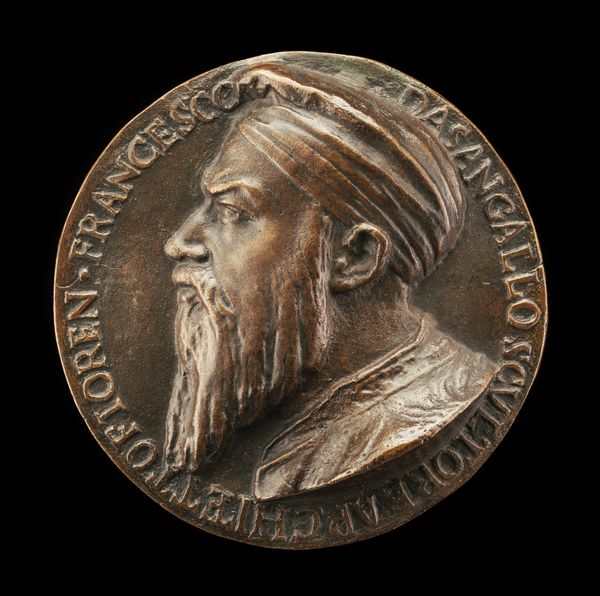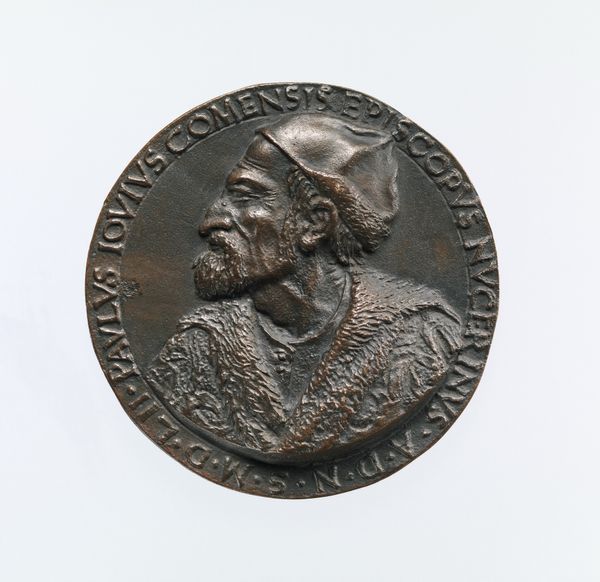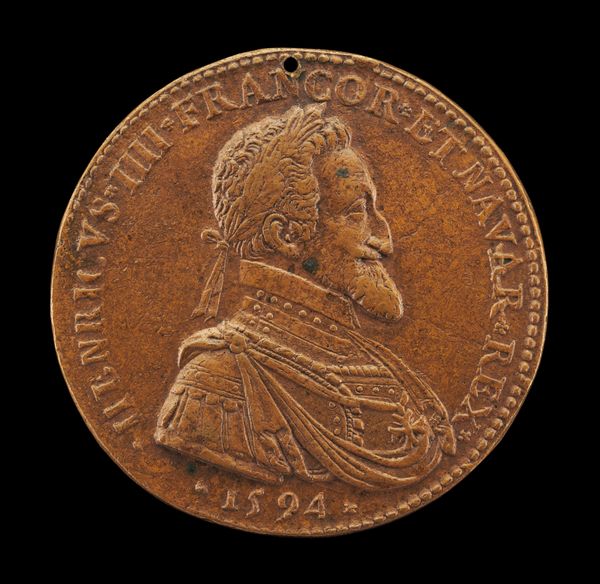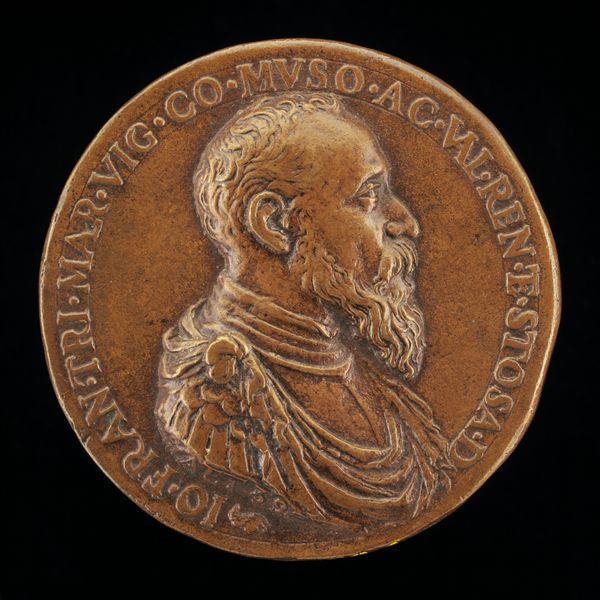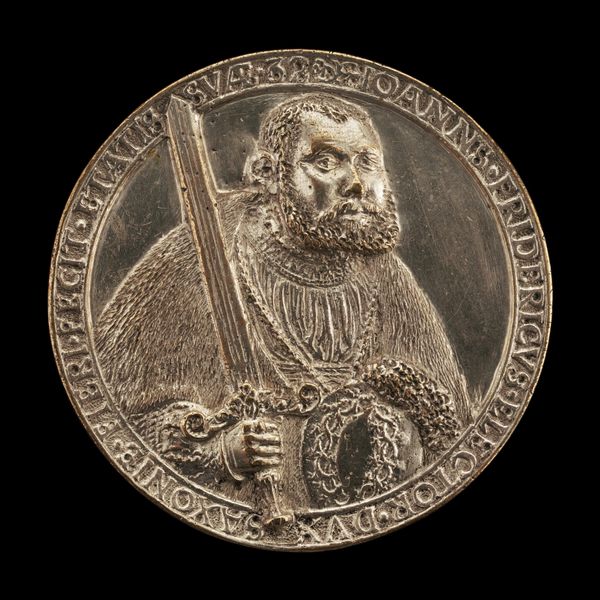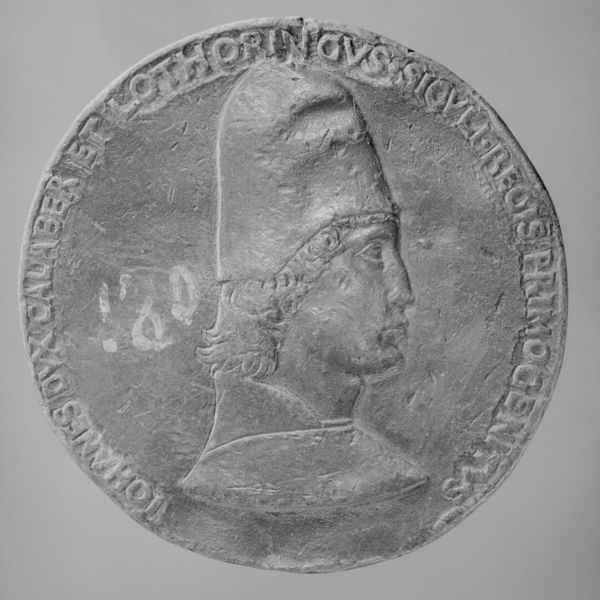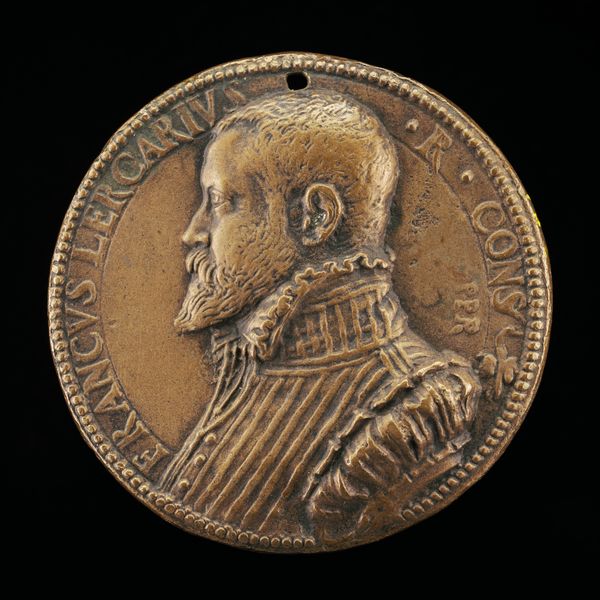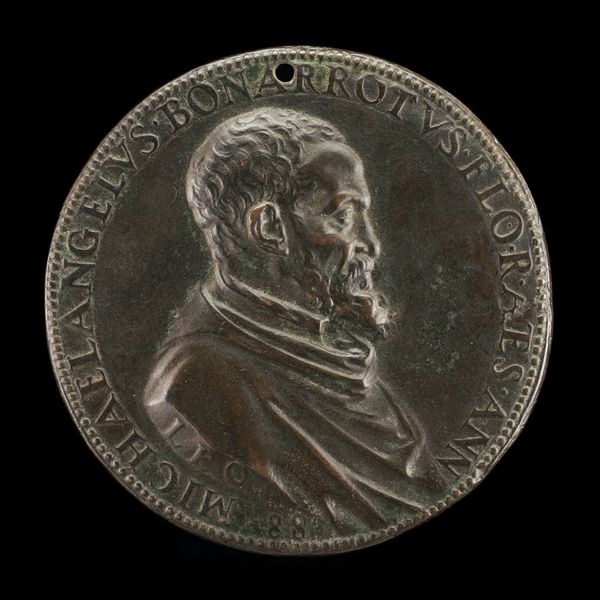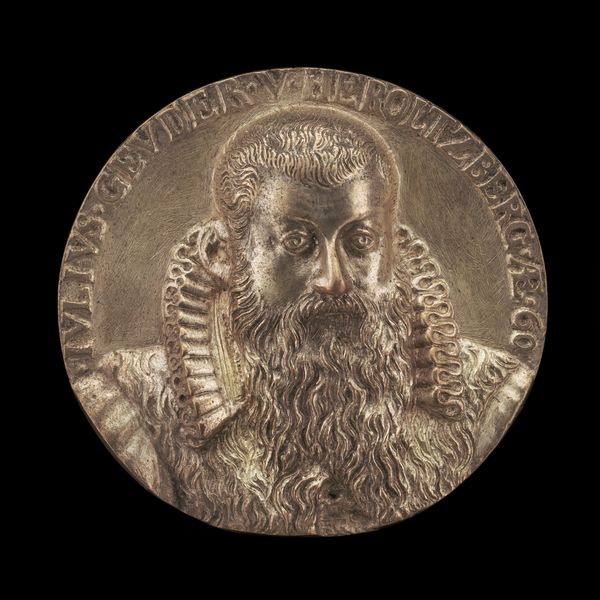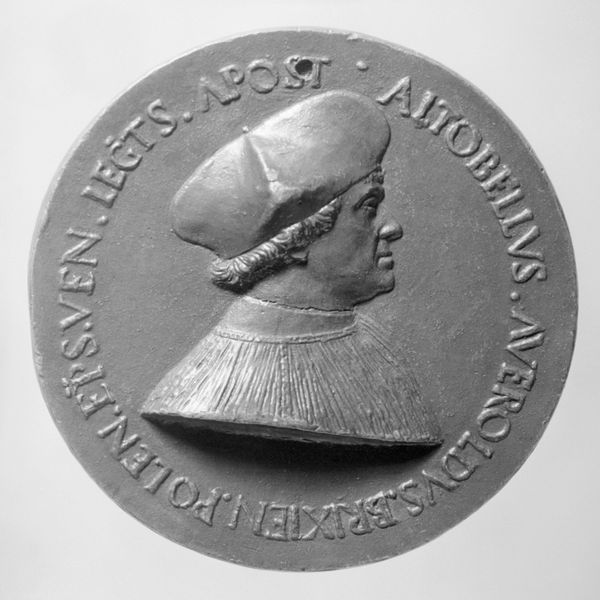
Paolo Giovio, Historian and Prelate, Bishop of Nocera (d. 1552) 1552
0:00
0:00
relief, bronze, sculpture
#
portrait
#
high-renaissance
#
sculpture
#
relief
#
bronze
#
sculpture
#
italian-renaissance
Dimensions: Diameter: 3 3/4 in. (95 mm)
Copyright: Public Domain
This portrait medallion of Paolo Giovio was made by Francesco da Sangallo in the 16th century using bronze. Bronze casting has ancient roots but here, the goal is to capture a life-like portrait, embedding the sitter's identity in a durable material. Notice the crisp details: the furrows in Giovio's brow, the texture of his beard, and the folds of his clothing. These were achieved through the lost-wax casting method, a meticulous process involving creating a wax model, encasing it in clay, melting out the wax, and then pouring molten bronze into the resulting mold. Once cooled, the mold is broken away, revealing the bronze form. The choice of bronze elevates the status of the sitter. Bronze was expensive and time consuming, a means of preserving status and memory. As with marble sculpture, bronze-cast portraiture immortalized its subjects. So, next time you see a bronze object, consider not just its form, but the labor, skill, and social context embedded within its making.
Comments
No comments
Be the first to comment and join the conversation on the ultimate creative platform.
